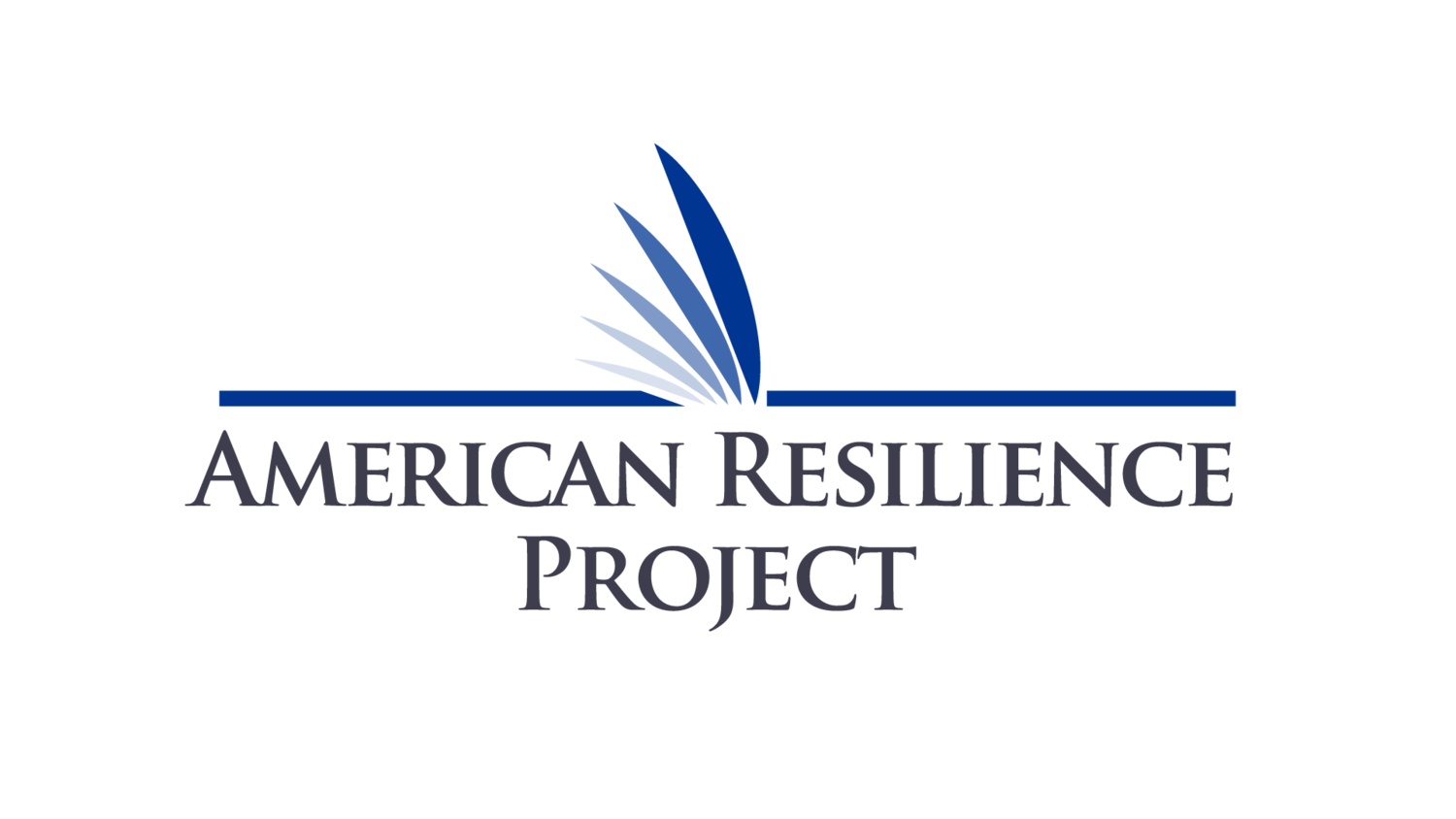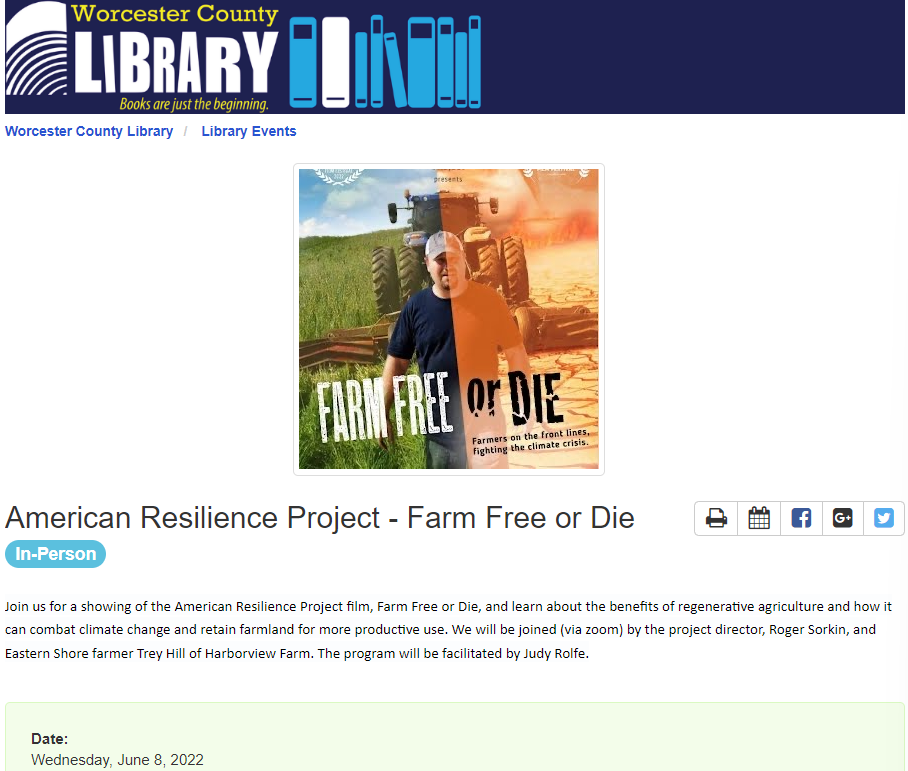Farm Free or Die
Regenerative agriculture is the best weapon we have to fight the climate crisis.
Film Synopsis:
Extreme weather events are hitting America’s farmers hard, and with greater frequency than ever before. Combined with the mounting costs of conventional farming methods that require increasingly expensive fossil-based fertilizer, pesticides and herbicides for ever-decreasing yields, these events are driving many farmers to economic failure. The cycle of extractive agriculture creates dire economic, food security, health and environmental hazards – for farmers and everyone else.
Farm Free or Die advocates for transformative agricultural policies that improve farming livelihoods and address the climate crisis. The stories of farmers on the front lines of severe environmental and economic adversity will catalyze support for policies that stabilize rural communities, strengthen food security, and incentivize soil health and carbon removal.
Watch the Film
Farm Free or Die Micro-Documentaries
Check out these short deep-dives into specific topics related to how regenerative agriculture can improve food system resilience against the climate crisis.
In the News
Donate to the Cause
Help us maximize our impact and continue making films with a tax-deductible contribution to American Resilience Project.
Get Involved!
Non-Profit Organizations and NGOs
Environmental Entrepreneurs (E2)
The Environmental Entrepreneurs is a national, nonpartisan group of business leaders, investors, and professionals from every sector of the economy who advocate for smart policies that are good for the economy and good for the environment. E2 members have founded or funded more than 2,500 companies, created more than 600,000 jobs, and manage more than $100 billion in venture and private equity capital.
Natural Resources Defense Council (NRDC)
Working in the United States and countries around the world, the Natural Resources Defense Council pushes corporations and policymakers to reduce harmful chemicals in our food. They fight for stronger pollution controls on industrial farms and help small farmers safeguard their crops against climate change. They also develop initiatives to reduce food waste and promote sustainability from farm to fork.
ClimateWorks
The ClimateWorks team is on a mission to end the climate crisis by amplifying the power of philanthropy. Over the past decade, ClimateWorks has built a global platform for philanthropy to innovate and accelerate climate solutions that scale. ClimateWorks’ global programs and services equip philanthropy with knowledge, networks, and solutions to drive climate progress. Since 2008, ClimateWorks has granted over $1 billion to more than 500 grantees in over 40 countries.
Citizens Climate Lobby (CCL)
Citizens' Climbate Lobby is a nonprofit, nonpartisan, grassroots advocacy climate change organization focused on national policies to address the climate movement.Our consistently respectful, nonpartisan approach to climate education is designed to create a broad, sustainable foundation for climate action across all geographic regions and political inclinations. By building upon shared values rather than partisan divides, and empowering our supporters to work in keeping with the concerns of their local communities, we work towards the adoption of fair, effective, and sustainable climate change solutions.
Environmental Defense Fund
The Environmental Defense Fund has been driving research, policy, and environmental activism for over 50 years and provides resources on a range of topics including the transition to clean energy.
Regenerate America
Regenerate America is an unprecedented coalition of farmers, businesses, nonprofits, and individuals from every corner of our country and all political stripes. Together, they are elevating the voices of farmers and ranchers demanding that the 2023 US Farm Bill shift resources & support towards regenerative agriculture.
Regeneration International
Regeneration International engages with a network of more than 250 international partners and a growing number of Regeneration Alliances throughout the world. Their mission is to promote, facilitate and accelerate the global transition to regenerative food, farming and land management for the purpose of restoring climate stability, ending world hunger and rebuilding deteriorated social, ecological and economic systems.
Research Institutes
Colorado State University - College for Agricultural Sciences
The College for Agricultural Science at CSU has comprehensive research programs in Soil Science, which address a variety of topics including biogeochemical cycling of nutrients; land application of animal, municipal and industrial wastes; transport and fate of inorganic and organic contaminants in soils and water; soil microbial structural and functional diversity; movement of water, solutes, and gases through soil; soil formation processes; soil fertility and precision nutrient management; soil and water quality; and global climate change.
Leopold Center for Sustainable Agriculture at Iowa State University
The Leopold Center for Sustainable Agriculture) was created in 1987 as part of the Iowa Groundwater Protection Act. The goals of the Center have been to identify and develop new ways to farm profitably while conserving natural resources as well as reducing negative environmental and social impacts.
The Rodale Institute
The Rodale Institute is dedicated to growing the organic movement through rigorous research, farmer training, and consumer education. Widely recognized as a founder of the modern organic movement, Rodale Institute has been a global leader in regenerative organic agriculture for over 70 years.
Sustainable Agriculture Research and Education Program (SARE)
The Sustainable Agriculture Research and Education Program is a decentralized competitive grants and education program operating in every state and island protectorate. SARE is divided into four different regions that operate as separate entities and run grant programs for their states.
Rocky Mountain Institute (RMI)
The Rocky Mountain Institute is an independent, non-partisan, non-profit organization of experts across disciplines working to accelerate the clean energy transition and improve lives. RMI decarbonizes energy systems through rapid, market-based change in the world’s most critical geographies to align with a 1.5°C future and address the climate crisis. RMI works with businesses, policymakers, communities and other organizations to identify and scale energy system interventions that will cut greenhouse gas emissions at least 50% by 2030.








